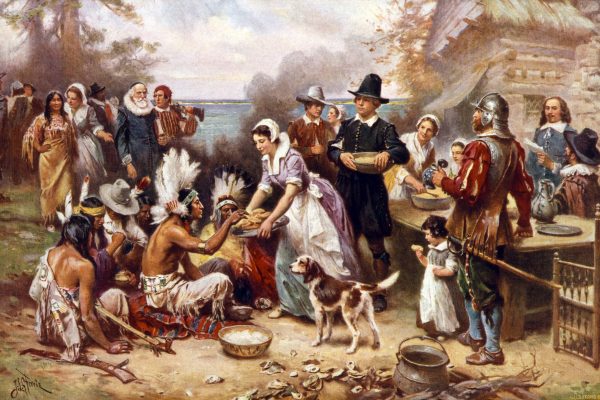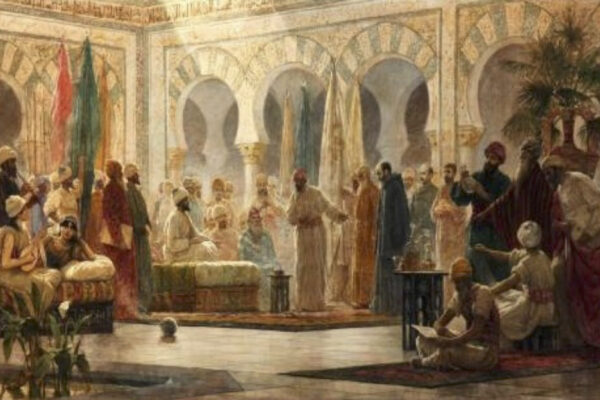Black intellectuals influenced by this line of thinking depicted Islam as a religion that was foreign to Africa and brought there by Arab invaders.
Black intellectuals influenced by this line of thinking depicted Islam as a religion that was foreign to Africa and brought there by Arab invaders.
During the twentieth century, Islam and Muslims came to enjoy a largely positive reputation among Black communities throughout America, particularly in urban centres. This was a byproduct of the increased visibility of Black American Muslims in these communities as various kinds of Islamic religious movements grew in popularity from the 1950s onward.
This trend was also fostered by the efforts of Black Muslim congregations to address some of the social, political economic and psycho-spiritual problems that Black Americans faced in an American society marked by violent anti-Black racism and systematic inequality.
Black Muslims and other Black Americans sympathetic to the Muslim faith often cited the long history of Islam on the African continent as indicative of Islam’s status as a more affirming and empowering religion for Black people, especially in comparison to Christianity. However, not everyone shared these sentiments.
During the 1970s and 1980s, a particularly anti-Islamic strand of Black cultural nationalism began to emerge within the broader cultural and intellectual movement known as Afrocentrism.[1] Black intellectuals influenced by this line of thinking depicted Islam as a religion that was foreign to Africa and brought there by Arab invaders.
They further held that Muslim attitudes toward race and slavery historically rendered the religion no less complicit in the oppression of Black people than that of the Western European Christians who colonized Africa and the Americas. Some non-Black, western educated academics share this historical analysis.
Recent publications like Chouki El-Hamel’s Black Morocco and Bruce Hall’s A History of Race in Muslim West Africa take this critique of Islam’s racial track record a step further by attributing modern notions of racial difference and anti-Blackness to precolonial Muslim societies on the African continent. This approach goes against that of earlier scholars, and thus marks a major shift in the way ethnic difference in the premodern world is depicted.
Recent years have also witnessed a resurgence in the popularity of this strain of Afrocentrism among Black popular intellectuals, sometimes referred to somewhat derisively as “hoteps.” In this article, I will attempt to explain the rise in popularity of an anti-Islamic brand of Afrocentrism during the 1970s and 1980s, and the political projects of certain scholars who played a key role in promoting it.
I will also challenge the reliability of the historical narrative these scholars advanced, particularly with regard to Islam’s relationship to the societies of West and Central Africa.
Chancellor Williams and the Emergence of Anti-Muslim Afrocentrism

In charting the anti-Muslim strain within Afrocentric thought, it is helpful to begin with the publication of Chancellor Williams’ The Destruction of Black Civilization in 1974. This work became a mainstay in Afrocentric circles and was used in some Black Studies college curricula. However, the book was later criticized by scholars who argued that it was filled with historical inaccuracies and unsubstantiated assertions. Throughout the book, Williams refers to “white Arabs” and asserts that color diversity among Arab peoples was due to a history of Arab slavery similar to European slavery in the Atlantic world. He contends that “Blacks are in Arabia for precisely the same reasons Blacks are in the United States, South America, and the Caribbean Islands—through capture and enslavement.”[2]
He further projects American notions and histories of race on the premodern Arab and African worlds, referring to brown-skinned Arabs as “mulattoes.” Williams’ treatment is rife with reifications and contradictions. But what is perhaps most notable is the degree to which Williams’ depiction of the relationship between Islam departs from that of earlier scholars like Frank Snowden and Cheikh Anta Diop, both of whom also figure prominently in Black Studies cannons.
Snowden’s 1970 work Blacks in Antiquity makes the competing claim that modern notions of race and racial hierarchy did not exist in the premodern world, even while various forms of ethnocentrism did. Snowden criticized many Afrocentric scholars including pioneering Senegalese historian and anthropologist Cheikh Anta Diop, challenging their views on the racial identity of members of premodern Mediterranean and North African societies.[3]
However, even Diop’s analysis differs greatly from Williams’ with regard to the relationship between Islam and Africa. According to Diop, the notion that Islam was intrinsically foreign to African societies south of the Sahara, or that Islam’s presence in the region was due to conquest and forced conversion was simply false. Diop famously observed that “[m]uch has been made of Arab invasions of Africa: they occurred in the North, but in Black Africa, they are figments of the imagination.”[4]
So what led Williams to construct a competing historical narrative? An observation made in the early chapters of Destruction of Black Civilization may offer a clue.
Williams charges that “Blacks in the United States seem to be more mixed up and confused over the search for racial identity than anywhere else. Hence, many are dropping their white western slavemasters’ names and adopting, not African, but their Arab and Berber slavemasters’ names!”[5]
Williams, who was a practising Christian, did not absolve European Christians of guilt in perpetuating the institution of slavery and the ideology of white supremacy at the expense of people of African descent. However, he reserved some of his staunchest criticism for Muslims—leading him to speak, at times, in absolutes and hyperbole, such as when he called the Egyptian ruler Muhammad Ali “the greatest murderer of Blacks that ever set foot on the African continent.”[6]
Williams’ seems to take issue with the rising popularity of Islam among Black Americans. For him, the true project of liberation would be served by embracing an “African” identity that was decidedly non-Muslim, making him more apt to celebrate the rulers and resistance movements of Central African societies like Angola and the Congo.
The summaries on the dust jacket of Destruction of Black Civilization even include a relevant criticism attributed to the Muhammad Speaks newspaper. After praising aspects of the book, the unidentified Muhammad Speaks representative observes that “(Williams’) claim that Islam helped the slavery of Black Africa is untrue because he used white text rather than accounts of non-whites academia and the truth.” Although the biases of the flagship publication of the Nation of Islam might seem obvious, Williams’ was indeed espousing a view that aligned with some notable white colleagues.
The Orientalist Origins of Anti-Muslim African Historiography
The practice of disassociating Islam from Africa in spite of its 1,000-year-old history on the continent was not without precedent. Other notable white scholars exhibited the same tendency. The even more brazen tactic of attributing to Arabized North Africans the anti-Blackness of European colonialism was largely pioneered and popularized by the noted British American historian Bernard Lewis.
Lewis, like Williams, was forthright about his consternation over Black Americans’ growing embrace of Islam. In this regard, he expresses his frustration specifically with the twentieth century’s most visible theorist and proponent of Islam among Black Americans, Malcolm X. After praising Malcolm X as “an acute and sensitive observer” exhibiting the “inevitably heightened perceptions of an American black” with regard to issues of race, he argues that his Islamic faith “prevented him from realizing the full implications of what he saw” during his travels to the Middle East.[7]
Lewis goes on to suggests that the racial dynamics of the precolonial Muslim world were comparable to those of segregationists Alabama. A wide range of scholars writing on Islam, including John Hunwick, Bruce Hall, and Richard Brent Turner, have presumed Lewis’ claim to be both true and universal. As a result, they applied his dubious characterization of racial dynamics in premodern Muslim societies to precolonial West Africa. Other historians of West Africa have demonstrated that, with regard to Muslim West Africa, such depictions are simply false.
In a working paper by Africanist historians Alden Young and Karen Wietzberg entitled “Does Race Have a Global History,” the authors place Lewis’ work within its proper political context.
“Written in the aftermath of the Six Day War, this work argued that racism was endemic to the Islamic world. Lewis produced this work, he acknowledged, in order to counter what he saw as the pernicious myths of Arnold Toynbee and Malcolm X that color prejudices were unknown to the Islamic world. Lewis, whose work was shaped by the geopolitics of the Cold War, became one of the most widely cited authors on the topic of slavery and race in Muslim societies.”
Lewis’ status as a Cold Warrior was something he did not deny. At times, he was quite transparent about his political positionality, such as in his exchanges with Edward Said in the New York Review of Books. Lewis does not challenge, for example, Said’s assertion that his scholarship is motivated by his political stance for increased American military support of Israel, and his resulting desire to undermine the cause of Pan-Arabism. Rather, he challenges Said to come clean about his own political agenda.[8]

In an article partly concerned with tracing the same intellectual genealogy that I consider here, the political scientist Hisham Aidi asks, “[h]ow did Arabs transmute, almost overnight, from being seen by African-Americans as allies in the struggle against Western racism to a slave-trading ‘intruder race’ occupying Africa? How did the pro-Arab pan-Africanism of Malcolm X lose out to the anti-Arab black nationalism of [Molefi] Asante, Williams and [Wole] Soyinka?”[9]
Indeed, Malcolm X’s embrace and articulation of a politics of Third World Internationalism, and the growing support of many Black Americans for Palestinian and North African revolutionary movements that he helped to foster were very much at odds with Lewis’ political aims. Lewis’ historical representation of race in Muslim societies, augmented by Afrocentric scholars like Williams and others, would go on to have a huge impact on both popular and scholarly notions about the relationship between Islam and anti-Blackness.
Conclusion: Using Black History to Inform Black Islam
Many influential scholars cite Bernard Lewis in their treatments of racial prejudice in the Arabic speaking world.[10] They extend his analysis to the African continent, taking Lewis’ assertions as objective and representative of Islam around the globe. They do not consider how categories of race in Africa and the Arabic speaking world were altered by colonization, Euro-American slavery, and the rise of Western imperialism.
For example, precolonial historical chronicles reveal that Turkish slaves could be purchased in the West African city of Timbuktu, and Europeans faced the threat of being enslaved in North Africa until well into the nineteenth century. These realities are inconsistent with the historical narrative offered by Orientalist scholars (like Bernard Lewis) and Afrocentric scholars (like Chancellor Williams) alike, both of whom would have us believe that African Muslim societies subjugated African people.
By obscuring this history and the transformations that led to the increased association of Blackness with slavery during the trans-Atlantic slave trade, these authors paint a picture that gives the impression that anti-Blackness is primordial—anachronistically locating its origins in the ancient world.
Conversely, Afrocentricity and Islam can be easily reconciled through the more accurate historical narratives of scholars like Diop and Snowden, as well as more recent historians of Africa like Humphrey Fisher and Rudolph Ware among others. These scholars recognize that Euro-American slavery and colonization changed how Africa and its people were perceived and treated around the world.
Before these shifts, Islam was simply one of the various religions that African people freely embraced, finding it both compelling and affirming. This is the historical perspective that gave rise to the anti-colonial Pan-Africanism articulated by Malcolm X and other Black American radicals who built solidarity with people of the Third World. In light of this historical perspective, Afrocentricity and Islam need not be at odds.
[1] In this article, I use the term Afrocentrism in the broadest possible manner, referring to a cultural and intellectual orientation that centers the history and experiences of people of African descent and seeks to address mechanisms that disenfranchise those people. This is how I have encountered the term in non-academic circles, though it is often defined more narrowly than this by academics.
[2] Williams, Chancellor. The Destruction of Black Civilization: Great Issues of a Race from 4500 B.C. to 2000 A.D. Chicago, Ill: Third World, 1974. p. 23
[3] Snowden, Frank. “Misconceptions about African Blacks in the Ancient Mediterranean World: Specialists and Afrocentrists.” Arion, Third Series, Vol. 4, No. 3 (Winter, 1997), p. 28-50
[4] Diop, Cheikh Anta. Precolonial Black Africa: A Comparative Study of the Political and Social Systems of Europe and Black Africa, from Antiquity to the Formation of Modern States. Chicago: Lawrence Hill, 1987. p. 101-102
[5] Williams, Chancellor. The Destruction of Black Civilization: Great Issues of a Race from 4500 B.C. to 2000 A.D. Chicago, Ill: Third World, 1974. p. 23
[6] Ibid., p. 159.
[7]Bernard Lewis, Race and Color in Islam.New York: Harper and Row, 1971. p. 3.
[8] Bernard Lewis, “The Question of Orientalism,” The New York Review of Books 29: 11 (1982) and the responses Bernard Lewis, Edward Said and a reply by Oleg Grabar, “Orientalism: An Exchange,” The New York Review of Books 29:13 (1982).
[9]Aidi, Hisham. “Slavery, Genocide and the Politics of Outrage Understanding the New Racial Olympics.” Slavery, Genocide and the Politics of Outrage | Middle East Research and Information Project. Middle East Research and Information Project, n.d. Web
[10]Chouki El Hamel, Black Morocco: A History of Slavery, Race, and Islam.Cambridge, UK: Cambridge University Press, 2013. p. 297.

by Rasul Miller for Sapelo Square.
Rasul Miller is a PhD student in History and Africana Studies at the University of Pennsylvania. His research interests include Muslim movements in 20th century America and their relationship to Black internationalist thought and West African intellectual history.





